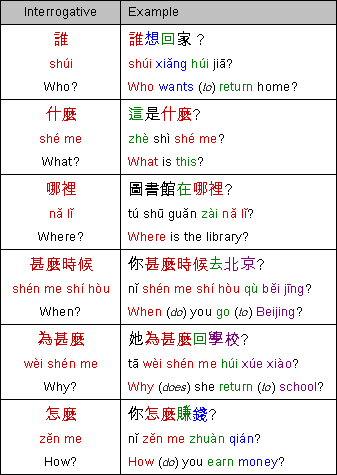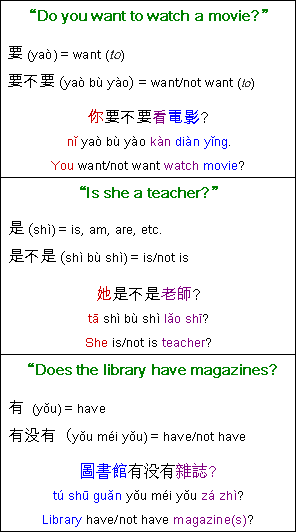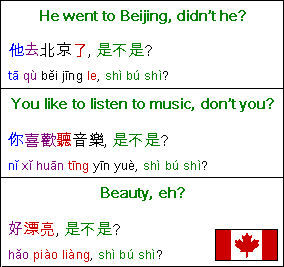




Learning how to ask questions in a new language is as important as learning basic survival sentences--maybe more important.
By that I mean, what good is learning, "One beer, please, bartender," if you can't ask before that, "Excuse me, where can I get a beer?"
Using the particle
(ma) is not the only way to create a question. Two other common formats involve
interrogatives (who, what, where, why, when, and how) and the "verb-not-verb"
construction.
Following are examples of some common interrogatives.

In this format, a verb is followed
by (bù) or
(méi)--which
mean no, not, or don't--and then the verb is repeated. These examples will show
you how the construction works.

When
is added as a tag to the end of an already completed sentence, it functions much
as the English "right?" or "isn't it?" - and perhaps the Canadian
"eh?" Seriously. I'm not joking.... All right, all right, maybe it's
just a little joke.
can be tagged to a sentence which contains any other verb in the main clause.
